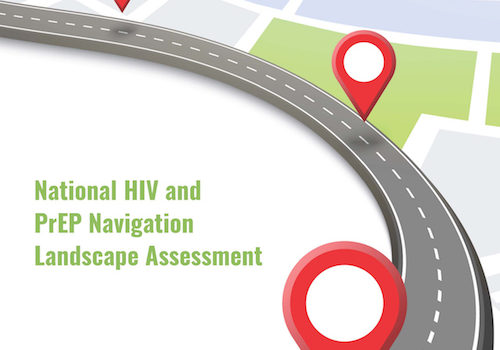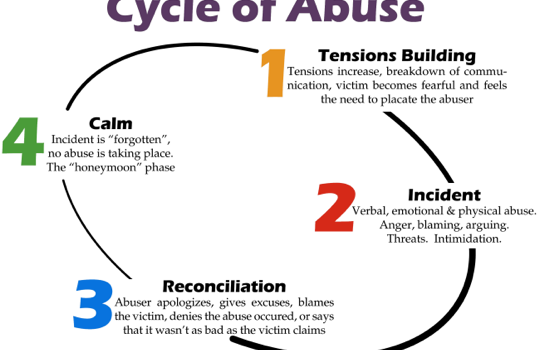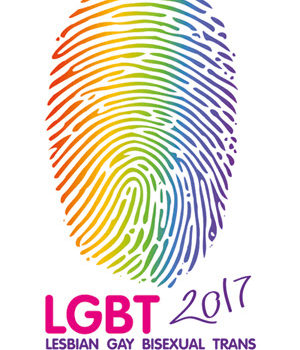Today, NMAC is honored to announce the recipients of the  2017 HIV 50+ Strong & Healthy Mini-Grant Program. The mini grant program allows our 2017 USCA HIV 50+ scholars to get involved in their community by developing and implementing a project to educate and engage HIV 50+ community members who need to connect with other peers. The grantees are affiliated with an organization that will act as the fiscal sponsor for the grant. NMAC understands that our movement needs leaders who are living with the virus. Our HIV 50+ scholars have important lessons to share with our HIV community. 2017 HIV 50+ Strong & Healthy Mini-Grant Program. The mini grant program allows our 2017 USCA HIV 50+ scholars to get involved in their community by developing and implementing a project to educate and engage HIV 50+ community members who need to connect with other peers. The grantees are affiliated with an organization that will act as the fiscal sponsor for the grant. NMAC understands that our movement needs leaders who are living with the virus. Our HIV 50+ scholars have important lessons to share with our HIV community.
Fourteen applications were awarded up to $2,500 in the categories of community education, community outreach, and community engagement. The grantees and the projects are:
- Robert Riester, Aurora CO, “From the Past by Our Future” a storyteller videos project.
- Dean Edward, Columbia, SC, “Engage to Lead” a project of engagement of HIV 50 Men.
- Nancy Shearer, Santa Monica, CA, “Positive Singles Mixer” a project to empower people living with HIV to expand their social networks, reducing feelings of stigma and isolation.
- Michael G. Smith, Santa Fe, NM, “Phoenix Rising 2.0” a project to enhance and encourage financial stability.
- Erik Jannke, Palm Spring, CA, “Manual on HIV & Aging” an explanatory manual on HIV & Aging.
- Cynthia Marker, Lakeside, CA, “Fellow Advocate Mentorship (FAM)” a project to increase health literacy, self-efficacy, and social support networks among women living with HIV who are 50+.
- Randal Lucero, Albuquerque, NM, “50 + Healthy and Strong Summit” a project to bring community leaders, 50 + individuals living with HIV and their allies together to improve the lives of older adults living with HIV.
- Lilibeth Gonzalez, New York, NY, “Thriving at 50 and Beyond” a full-day community education event for 50 HIV-positive people aged 50 or older.
- Teresa Sullivan, Philadelphia, PA, “Sister to Sister: Women of Color Long Term – Survivors Building Our Voices of Resilience” a project to provide interactive educational sessions, on health and wellness to Women of color over fifty years old and living with HIV and end self- isolation.
- Rob Quinn, Boston, MA, ““Healthy Aging with HIV Community Wellness Day” a one-day weekend event targeting holistic health services, resources, and education for PLWH 50+ and Long-Term Survivor.
- Bryan Jones, Cleveland, OH, “Building leader for tomorrow among people of color” a project to instill purpose in those over 50 to empower those under 35 who are not engaged in planning bodies or decision-making opportunities.
- Jesus Guillen, San Francisco, CA, “The Chronicles of the Phoenix” a project to educate, engage and entertain.
- Jennifer Chang, Los Angeles, CA, “Puppy Love” a communal meet-and-greet, and dog-walking event for 50+ survivors of HIV/AIDS who are otherwise socially isolated.
- Esther Ross, Greenville, NC,” ‘Leaders Advocating and Mentoring other leaders for Personal growth and Support (LAMPS)” a project to educate persons of Color living with HIV over the age of 50 to mentor, train and support one other peer.
NMAC is very excited to be able to fund these projects and look forward to a fruitful collaboration. Successful projects will be showcased at the 2018 USCA. NMAC wants to thank Gilead for their support of these mini-grants. We can change the world and end the epidemic as we support and build community in the over 50-year-old people living with HIV.
Yours in the Struggle,

Moisés Agosto-Rosario
(202) 836-3669
Director of Treatment
 |

 2017 HIV 50+ Strong & Healthy Mini-Grant Program. The mini grant program allows our 2017 USCA HIV 50+ scholars to get involved in their community by developing and implementing a project to educate and engage HIV 50+ community members who need to connect with other peers. The grantees are affiliated with an organization that will act as the fiscal sponsor for the grant. NMAC understands that our movement needs leaders who are living with the virus. Our HIV 50+ scholars have important lessons to share with our HIV community.
2017 HIV 50+ Strong & Healthy Mini-Grant Program. The mini grant program allows our 2017 USCA HIV 50+ scholars to get involved in their community by developing and implementing a project to educate and engage HIV 50+ community members who need to connect with other peers. The grantees are affiliated with an organization that will act as the fiscal sponsor for the grant. NMAC understands that our movement needs leaders who are living with the virus. Our HIV 50+ scholars have important lessons to share with our HIV community.
 the epidemic. The Summit will highlight the innovations and achievements in biomedical and behavioral sciences in order to engage our movement about the best practices and lessons learned that will ultimately lead to success. We want you to be a part of this intimate and necessary event. Register by November 3 so you can reserve your place for this year’s Biomedical HIV Prevention Summit. Last year was the first time that NMAC had to cut off registration for one of our conferences due to capacity and we expect to do the same this year! As part of this low registration fee of $275 you will receive access to 4 plenary sessions, participation in over 30 workshops, engagement in an intimate exhibit hall, and receive breakfast and lunch each day.
the epidemic. The Summit will highlight the innovations and achievements in biomedical and behavioral sciences in order to engage our movement about the best practices and lessons learned that will ultimately lead to success. We want you to be a part of this intimate and necessary event. Register by November 3 so you can reserve your place for this year’s Biomedical HIV Prevention Summit. Last year was the first time that NMAC had to cut off registration for one of our conferences due to capacity and we expect to do the same this year! As part of this low registration fee of $275 you will receive access to 4 plenary sessions, participation in over 30 workshops, engagement in an intimate exhibit hall, and receive breakfast and lunch each day. year’s Summit will improve on the successes of last year’s meeting by broadening the focus from just PrEP to include biomedical prevention options. It’s time to think about the expanded integrated role that PrEP, PEP, and Treatment as Prevention (TasP) has in building pathways to ending the epidemic. Workshops on building comprehensive HIV plans, PrEP in the South, TasP and the Undetectable = Untransmittable movement are just a few of the topics that will be covered. Check out the Summit program and Listing of Workshops online here.
year’s Summit will improve on the successes of last year’s meeting by broadening the focus from just PrEP to include biomedical prevention options. It’s time to think about the expanded integrated role that PrEP, PEP, and Treatment as Prevention (TasP) has in building pathways to ending the epidemic. Workshops on building comprehensive HIV plans, PrEP in the South, TasP and the Undetectable = Untransmittable movement are just a few of the topics that will be covered. Check out the Summit program and Listing of Workshops online here.
